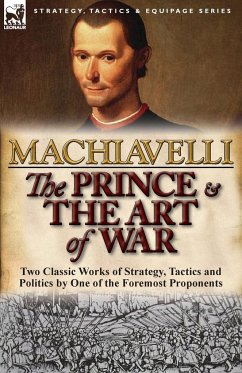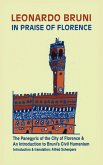The lion cannot guard himself from the toils, nor the fox from wolves. A Prince must therefore be a fox to discern toils, and a lion to drive off wolves. The modern-day term "Machiavellian" is used to describe deception, dishonesty, and cruelty to meet a goal. The Prince by Niccolò Machiavelli was written as a guide for autocrats on how to govern using means that were meant to deceive and manipulate a government's constituency-to the extent of advocating the use of evil for political expediency. In this classic work, the end justifies the means reigns paramount to Machiavelli's system of government.
Hinweis: Dieser Artikel kann nur an eine deutsche Lieferadresse ausgeliefert werden.
Hinweis: Dieser Artikel kann nur an eine deutsche Lieferadresse ausgeliefert werden.








